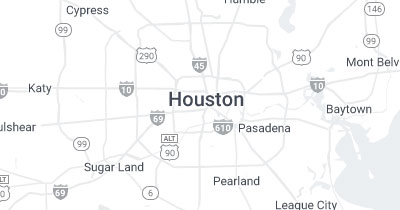Feeling Lonely? You’re Not Alone
- Updated on: 2023-03-06
- Read original article here

When it comes to your health, it’s your right to fight for it because you are your biggest advocate. In Shondaland’sWomen’s Health series this month, we’re offering insight and advice on how to take your physical and mental well-being into your own hands so you can lead a happy, healthy life.
Araya Baker, a counselor, educator, and suicidologist who works with students at Pennsylvania State University, helps young people through all kinds of situations that impact mental health (breakups, adjusting to life without the safety net of parents, the stress that comes with balancing work, school, and life). And yet, there’s one issue he sees in clients that he too has faced: feeling lonely. After relocating from Texas to the East Coast, he was hit with a realization that made him pause. “I hadn’t had much human interaction in a long time. It’s more common than people think,” he says.
Even before the pandemic, loneliness was becoming a quiet killer. As far back as 2017, Vivek Murthy, who served as surgeon general under the Obama administration and is currently the surgeon general under the Biden administration, had been sounding the alarm about how harmful loneliness can be. (He even about the importance of making connections.) Some 40 percent of American adults ages 45 and over, Murthy noted in an article for the Harvard Business Review, reported feeling lonely … and that data was from 2010.
Thanks to our increasingly digitized lives, a culture that prioritizes individualism and workaholism, and yes, the isolation that the pandemic wrought, loneliness is becoming more common — even if people aren’t talking about it. Loneliness, a malady that’s loosely defined but boils down to feeling disconnected from others and lacking desired social bonds, can cause mental health issues, such as anxiety and depression, or exacerbate existing ones. Loneliness can be deadly.
Prolonged social isolation increases the risk of dementia, heart disease, strokes, substance abuse, and suicide, among other potentially fatal conditions, according to a report from the National Academies of Sciences, Engineering, and Medicine. Dr. Jay Baruch, a professor of emergency medicine at Brown University and the author of Tornado of Life, knows this all too well. As an ER doctor, he’s learned to see an emergency room visit as a “narrative event” — meaning there’s a story behind why someone had to come to an emergency room — and loneliness can often be a driving force.
It’s rare, he tells Shondaland, that someone comes in and says they’re lonely; complaints are more likely to be about shortness of breath, fatigue, a pain in the chest. But it’s what they’re not telling him that he now knows to look out for. “You ask, ‘What’s your living situation right now? Who cares for you? Who have you spoken to about this issue? Oh, you live alone?’ Often, you get that information that way. You sort of come into the issue sideways, and it ends up coming out. We tend to think about loneliness in an emotional way,” Baruch says, “but it’s critical we address it, because there are physiological consequences.”
Psychologists and researchers are still figuring out how loneliness affects men and women differently, and answers are complicated. But they do know that women tend to report loneliness at higher rates than men do. That might not mean women are more lonely; indeed, the prevailing theory is that women simply feel more comfortable talking about their feelings, loneliness included.
“I think men are incredibly lonely,” Baker says. “Boys are not socialized to create strong interpersonal connections and ones that are long-lasting. Social skills, communication skills, conflict-resolution skills — there’s an entire frame of emotional intelligence we don’t train boys to have.” One way of highlighting that, he says, is suicide rates, which are almost four times higher in menthan women — evidence that men are feeling lonely too; they just don’t talk about it. The reality is that everybody can feel the weight of loneliness. It just shows up in women differently, and the consequences are different.
“Women tend to be more likely to over-give and have a lot on their plates,” says Yasmine Cheyenne, a mental-wellness advocate who created her own app that helps people learn self-awareness, boundaries, and other tools for healing. “Women tend to hold on to titles — friend, mom, aunt, etc. We are doing so much and giving outside ourselves, sometimes we don’t recognize that we are lonely.”
A common misconception about loneliness is that people who are popular, with a lot of friends or are partnered, don’t feel lonely. Cheyenne insists that’s not the case at all; nearly all her clients in her counseling work report feeling lonely, she says, and many are in relationships. It’s important to remember that loneliness is about feeling connected, not the amount of people in one’s life. So, it’s not only possible for people who have active social lives or committed partners to feel like they’re not connecting with the people in their lives, it’s actually common. “People feel like, ‘I have a bunch of people in my life, but I don’t have anyone I would call in the middle of the night,’” Cheyenne explains.
She encourages people who are feeling lonely to do some self-interrogation and ask themselves probing questions such as “When it gets down to it, who are the people I can turn to? Is this someone you can show up and be vulnerable with? Am I showing up in relationships in a way that makes space for me to have a connection?”
Similarly, people who live in the suburbs or smaller communities might look to friends in big, urban metropolitan areas and assume they never get lonely; after all, they’re surrounded by millions of people, and there’s always something to do. Not so. It can be hard making friends as an adult, and cities are typically fast-paced with rigid social hierarchies that can leave city dwellers, even people with lots of friends and an active social calendar, feeling alone. More than half of New Yorkers report feeling lonely, according to the New York City Department of Health and Mental Hygiene.
“People feel like they don’t have anyone to talk to,” Cheyenne says, “or fear being a burden on their partner. Friends are too busy, or a spouse doesn’t have time to watch a movie. They might feel like, ‘I asked before, and I don’t want to be disappointed.’”
The upside is that there are things we can do to combat these feelings before they have devastating effects. “First thing,” Cheyenne says, “is to reach out to the people in your life you already know.” Sometimes we’re afraid to try and rekindle relationships, she says, but her advice is to show up fully, and when they ask how you’re doing, be honest. “Say, ‘I’m trying to reconnect with people in my life.’ Allow them to show up for you,” she says.
Another tip: Go seek out like-minded people, whether that means taking that salsa class in your neighborhood, a knitting circle, a yoga group, whatever. “Start to think about the things you’re interested in, even if you’ve never done them,” she says. While it’s possible you won’t connect with the people there, it is possible that one relationship could lead to another, more fulfilling one. “Give yourself a chance,” she says.
Baker says he worked on overcoming his loneliness by forcing himself to go to events and meet people in his new city. “During the pandemic, I chose to go to professional events in person — masked, of course,” he says. “Even the experience of having a conversation with people, finding a shared interest with somebody at a meeting, improved my mood. We’re social beings. Even if our most basic needs are met, we will perish without social support.”
Malcolm Venable is a Senior Staff Writer at Shondaland. Follow him on Twitter @malcolmvenable.
Get Shondaland directly in your inbox:





